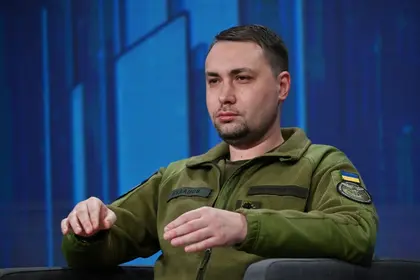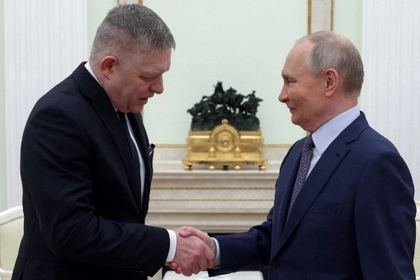Kyrylo Budanov, chief of the Main Directorate of Intelligence (HUR) of Ukraine’s Ministry of Defense has said that Russian opposition leader Alexei Navalny died of a blood clot.
“I may disappoint you, but as far as we know, he indeed died as a result of a blood clot. And this has been more or less confirmed,” Budanov told journalists on the sidelines at the “Ukraine. Year of 2024” forum on Sunday.
JOIN US ON TELEGRAM
Follow our coverage of the war on the @Kyivpost_official.
"This wasn't sourced from the internet, but, unfortunately, natural [causes],” he added.
Earlier Navalny’s team, reported that his body was finally handed to his mother, Lyudmila Navalnaya, after more than a week since his demise in a remote Arctic colony.
Navalny, President Vladimir Putin's most prominent critic, died on February 16 in one of Russia's toughest prisons in northern Siberia.
He was serving a 19-year sentence on charges denounced by Putin's critics as political retribution for his opposition activity.
"Alexei's body was handed over to his mother," a spokesperson for Navalny's team, Kira Yarmysh said on X, formerly Twitter.
"Many thanks to all those who demanded this with us."
For a week, Russian officials had refused to give Lyudmila Navalnaya custody of her son's body.
She had travelled to the town of Salekhard in the Yamalo-Nenets region, the nearest settlement to the prison colony where Navalny died, to recover it.

NATO Chief Calls Zelensky’s Criticism of Scholz Unfair
His team has already argued that the Kremlin was trying to block a public funeral, which could turn into a show of support for Navalny's movement and his opposition to Putin.
The Russian leader, who famously never said Navalny's name in public, has not commented on the death of his most vocal critic.
His spokesman, Dmitry Peskov, has criticised statements by Navalny's wife and Western leaders blaming Putin for his death as "vulgar".
Initially, Russian authorities claimed Navalny's death resulted from "natural causes" following his loss of consciousness during a walk in the prison colony dubbed "Polar Wolf."
His team denounced officials' initial refusal to release his body -- their refusal for days to let his mother even see it -- accusing them of trying to "cover their tracks".
You can also highlight the text and press Ctrl + Enter






